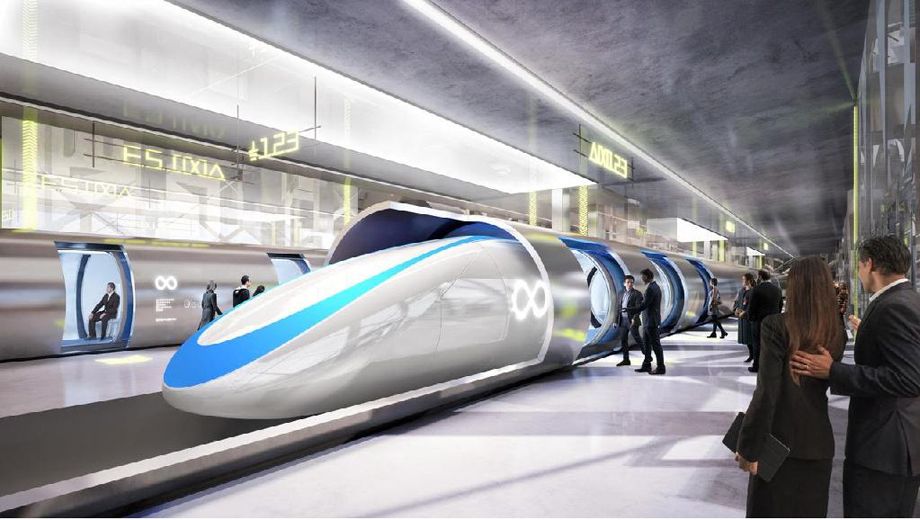Tesla & Uber debate flying cars, hyperloops – but it's still all hype

Late last week, two Silicon Valley powers got into an online scrum over a technology that is neither developing nor likely to take off anytime soon.
On his grand tour of Asia, Uber Chief Executive Officer Dara Khosrowshahi won headlines by predicting that private air taxis – flying cars – will be whizzing over U.S. cities within a decade, negating the need for costly new transportation concepts like the hyperloop.
Elon Musk, who popularized the idea of a high-speed, tube-based transportation system dubbed the hyperloop and has expressed skepticism before about flying cars, didn’t pass up the opportunity to do so again.
“If you love drones above your house, you’ll really love vast numbers of ‘cars’ flying over your head that are 1000 times bigger and noisier and blow away anything that isn’t nailed down when they land,” he tweeted.
“Challenge accepted,” Khosrowshahi responded, pledging to pursue advancements in battery technology and rotor design. But this was just innovation theater.
Uber is not actually working on developing batteries or rotors, nor is it making its own stealthy air taxis, as far as we know. Unlike its expensive and controversial effort to build driverless cars, the so-called Uber Elevate initiative seeks to incorporate air taxis that other companies may build someday into an Uber-like hailing service.
The whole debate, flush with assumptions about a future that may or may not arrive at some hazily defined point in time, is typical of the many anxious discussions we’ve been having lately about technologies like killer robots, job-crushing automations and super-human AI.
Now we’re debating the rollout of flying cars.
Well, I’ve seen the prototypes and some elegantly produced videos, and while the progress is real, we are still years away from aircrafts that offer a safe alternative to the daily commute.
Then there are the regulatory challenges – and the non-trivial need to create an entirely new air traffic control system that does not depend on humans staring out of control towers – and it may be decades before we ever have to worry about them landing quietly in our backyards.
Of course, hyperloops aren’t imminent, either. Although Musk and several startups are working on it, there’s no known prototype capable of achieving the speed or distance Musk theorized in his original specification for the technology. Securing permits from officials is another major hurdle.
In the flying-car debate, Musk is doing that Steve Jobs thing - expressing distaste for any idea he did not come up with himself.
The squabble between Musk and Khosrowshahi reminded me of an eminently sensible piece last year in MIT Technology Review by the roboticist Rodney Brooks, who noted that humans “tend to overestimate the effect of a technology in the short run and underestimate the effect in the long run.” Brooks wrote that progress in AI has been repeatedly overestimated and that “all the evidence I see says we have no real idea how to build” autonomous agents with human levels of intelligence.
Despite current levels of hysteria around AI and robotics, Brooks said, we cannot conceive of what form they will eventually take and what tools we will have to manage it. The hysteria over AI - much of it stirred up by the mischievous Musk himself – leads to “fears of things that are not going to happen,” like the widespread destruction of jobs, Brooks writes.
The same dynamic is true now of flying cars. Regardless of dueling tweets between a millionaire and a billionaire, the future remains unknowable. The only guarantee is that you won’t be commuting in one of these things for a long time.
QFF
19 Sep 2013
Total posts 209
As one who has been on the bleeding edge developing technology products, I tend to agree with Mr Brooks.
Hi Guest, join in the discussion on Tesla & Uber debate flying cars, hyperloops – but it's still all hype